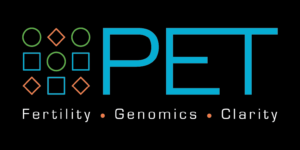About us
Learn how GA4GH helps expand responsible genomic data use to benefit human health.
Learn how GA4GH helps expand responsible genomic data use to benefit human health.
Our Strategic Road Map defines strategies, standards, and policy frameworks to support responsible global use of genomic and related health data.
Discover how a meeting of 50 leaders in genomics and medicine led to an alliance uniting more than 5,000 individuals and organisations to benefit human health.
GA4GH Inc. is a not-for-profit organisation that supports the global GA4GH community.
The GA4GH Council, consisting of the Executive Committee, Strategic Leadership Committee, and Product Steering Committee, guides our collaborative, globe-spanning alliance.
The Funders Forum brings together organisations that offer both financial support and strategic guidance.
The EDI Advisory Group responds to issues raised in the GA4GH community, finding equitable, inclusive ways to build products that benefit diverse groups.
Distributed across a number of Host Institutions, our staff team supports the mission and operations of GA4GH.
Curious who we are? Meet the people and organisations across six continents who make up GA4GH.
More than 500 organisations connected to genomics — in healthcare, research, patient advocacy, industry, and beyond — have signed onto the mission and vision of GA4GH as Organisational Members.
These core Organisational Members are genomic data initiatives that have committed resources to guide GA4GH work and pilot our products.
This subset of Organisational Members whose networks or infrastructure align with GA4GH priorities has made a long-term commitment to engaging with our community.
Local and national organisations assign experts to spend at least 30% of their time building GA4GH products.
Anyone working in genomics and related fields is invited to participate in our inclusive community by creating and using new products.
Wondering what GA4GH does? Learn how we find and overcome challenges to expanding responsible genomic data use for the benefit of human health.
Study Groups define needs. Participants survey the landscape of the genomics and health community and determine whether GA4GH can help.
Work Streams create products. Community members join together to develop technical standards, policy frameworks, and policy tools that overcome hurdles to international genomic data use.
GIF solves problems. Organisations in the forum pilot GA4GH products in real-world situations. Along the way, they troubleshoot products, suggest updates, and flag additional needs.
GIF Projects are community-led initiatives that put GA4GH products into practice in real-world scenarios.
The GIF AMA programme produces events and resources to address implementation questions and challenges.
NIF finds challenges and opportunities in genomics at a global scale. National programmes meet to share best practices, avoid incompatabilities, and help translate genomics into benefits for human health.
Communities of Interest find challenges and opportunities in areas such as rare disease, cancer, and infectious disease. Participants pinpoint real-world problems that would benefit from broad data use.
The Technical Alignment Subcommittee (TASC) supports harmonisation, interoperability, and technical alignment across GA4GH products.
Find out what’s happening with up to the minute meeting schedules for the GA4GH community.
See all our products — always free and open-source. Do you work on cloud genomics, data discovery, user access, data security or regulatory policy and ethics? Need to represent genomic, phenotypic, or clinical data? We’ve got a solution for you.
All GA4GH standards, frameworks, and tools follow the Product Development and Approval Process before being officially adopted.
Learn how other organisations have implemented GA4GH products to solve real-world problems.
Help us transform the future of genomic data use! See how GA4GH can benefit you — whether you’re using our products, writing our standards, subscribing to a newsletter, or more.
Join our community! Explore opportunities to participate in or lead GA4GH activities.
Help create new global standards and frameworks for responsible genomic data use.
Align your organisation with the GA4GH mission and vision.
Want to advance both your career and responsible genomic data sharing at the same time? See our open leadership opportunities.
Join our international team and help us advance genomic data use for the benefit of human health.
Discover current opportunities to engage with GA4GH. Share feedback on our products, apply for volunteer leadership roles, and contribute your expertise to shape the future of genomic data sharing.
Solve real problems by aligning your organisation with the world’s genomics standards. We offer software dvelopers both customisable and out-of-the-box solutions to help you get started.
Learn more about upcoming GA4GH events. See reports and recordings from our past events.
Speak directly to the global genomics and health community while supporting GA4GH strategy.
Be the first to hear about the latest GA4GH products, upcoming meetings, new initiatives, and more.
Questions? We would love to hear from you.
Read news, stories, and insights from the forefront of genomic and clinical data use.
Publishes regular briefs exploring laws and regulations, including data protection laws, that impact genomic and related health data sharing
Translates findings from studies on public attitudes towards genomic data sharing into short blog posts, with a particular focus on policy implications
Attend an upcoming GA4GH event, or view meeting reports from past events.
See new projects, updates, and calls for support from the Work Streams.
Read academic papers coauthored by GA4GH contributors.
Listen to our podcast OmicsXchange, featuring discussions from leaders in the world of genomics, health, and data sharing.
Check out our videos, then subscribe to our YouTube channel for more content.
View the latest GA4GH updates, Genomics and Health News, Implementation Notes, GDPR Briefs, and more.
10 Jan 2023
The charity Progress Educational Trust (PET) commissioned a survey to conduct a nationally representative survey of the UK public. The goal was to measure people’s understanding of, and attitudes towards, areas of science and medicine, including genetics and genomics. The findings are discussed in this brief.


In 2022, the charity Progress Educational Trust (PET) marked its 30th birthday by commissioning Ipsos to conduct a nationally representative survey of the UK public. We wanted to measure people’s understanding of, and attitudes towards, areas of science and medicine, including genetics and genomics. The resulting report is wide-ranging, and can be read in full here.
The report’s central ‘Genetics and Genomics’ section begins by exploring the respondents’ understanding/familiarity of the term ‘genome’. Survey participants were presented with a selection of definitions of this term and were asked to identify the correct definition(s) or alternatively to select ‘don’t know’. Just 45% of participants succeeded in selecting only scientifically correct definitions of the term, while 33% selected ‘don’t know’ .
Given the increasing importance of genomics in medicine – with the Long Term Plan for the UK’s National Health Service (NHS) including a commitment to ‘be the first national health care system to offer whole genome sequencing as part of routine care’ – this low level of understanding is a cause for concern. Reassuringly, 16-24-year-olds were more likely than some older groups of participants to select only correct definitions of the term ‘genome’.
Our survey goes on to explore public attitudes to the storage of an individual’s genetic data in a national database (separate to medical records), for the following purposes.
The first scenario – the use of an individual’s genetic data for that individual’s direct care – was supported by 57% of participants, and was opposed by only 12% (the remainder selected the responses ‘neither support nor oppose‘ or ‘don’t know’).
We were encouraged to see that people are broadly receptive to the idea of their genetic data being stored, particularly for use in their own healthcare. With the advent of the UK’s NHS Genomic Medicine Service and related initiatives, storage of genetic data is likely to become increasingly commonplace and important to people’s medical treatment.
The next two scenarios listed above were also supported by a majority of participants. 52% supported the storage of an individual’s genetic data for the direct care of that individual’s family (15% were opposed), while 53% supported the storage of an individual’s genetic data for research purposes (15% were opposed).
This attitude is echoed in a later part of the survey, where participants were asked to what extent they agreed or disagreed with the statement ‘I would willingly share my genetic data (assuming my name and other personal details are withheld) for medical research’. Again, more than half of participants responded positively, with 20% selecting ‘strongly agree’ and a further 32% selecting ‘tend to agree’.
It is heartening to see that so many people are comfortable with their genetic data being used for the good of others – either family members, or the wider community through research. This bodes well, at a time when such deidentified data is already being made available to researchers through UK projects such as UK BioBank, the 100,000 Genomes Project, Genes and Health and Our Future Health, and with similar projects taking place in other parts of the world.
The goodwill that makes such research possible must not be taken for granted. Rather, we must sustain and build upon existing levels of trust by upholding high ethical and technical standards. On that theme, it is unsurprising that the fourth scenario in our list above – in which authorities such as the police can access stored genetic data, and can readily identify associated individuals – was the least supported by survey participants, with only 40% in favour and 25% opposed.
This reinforces the importance of clear rules about who can access genetic data and why. People must be able to trust that any data collected will only be used in the agreed way, and for the stated purpose.
It is also important to clarify the potential benefits and ultimate objectives of research. More than half of survey participants agreed with the statement ‘More scientific and medical research into human genetics is needed, otherwise we will miss out on new treatments for life-limiting conditions such as cancer’ – with 20% selecting ‘strongly agree’, and a further 37% selecting ‘tend to agree’.
Researchers, policymakers and funders should feel emboldened by this response. There is clearly much work to be done explaining what is entailed by moving from the era of genetics to the era of genomics, not least improving the public’s understanding of what a ‘genome’ actually is. However, there is good reason to think that work in this area enjoys public support in the UK, at least for the time being.
To find out what the UK public thought about direct-to-consumer genetic tests, routinely sequencing the genomes of newborn babies, new medical treatments which involve genome editing, and much more, read our full report Fertility, Genomics and Embryo Research: Public Attitudes and Understanding.
This blog series is written by Sarah Norcross, Director of the Progress Educational Trust (PET).
PET is a charity which improves choices for people affected by infertility and genetic conditions.
This brief is part of the Public Attitudes for Genomic Policy blog series, developed by the GA4GH Regulatory & Ethics Work Stream (REWS). Visit here to read the past brief.